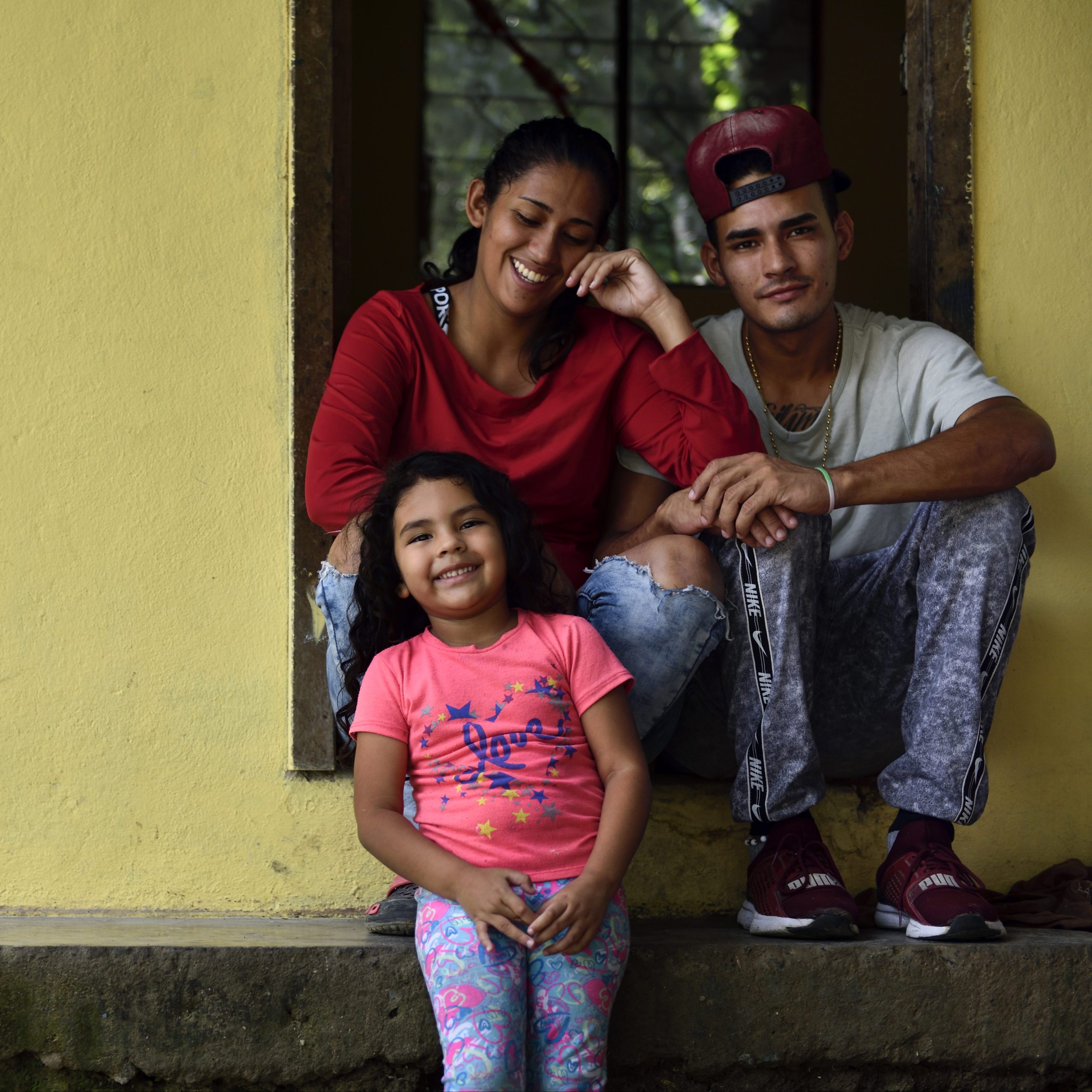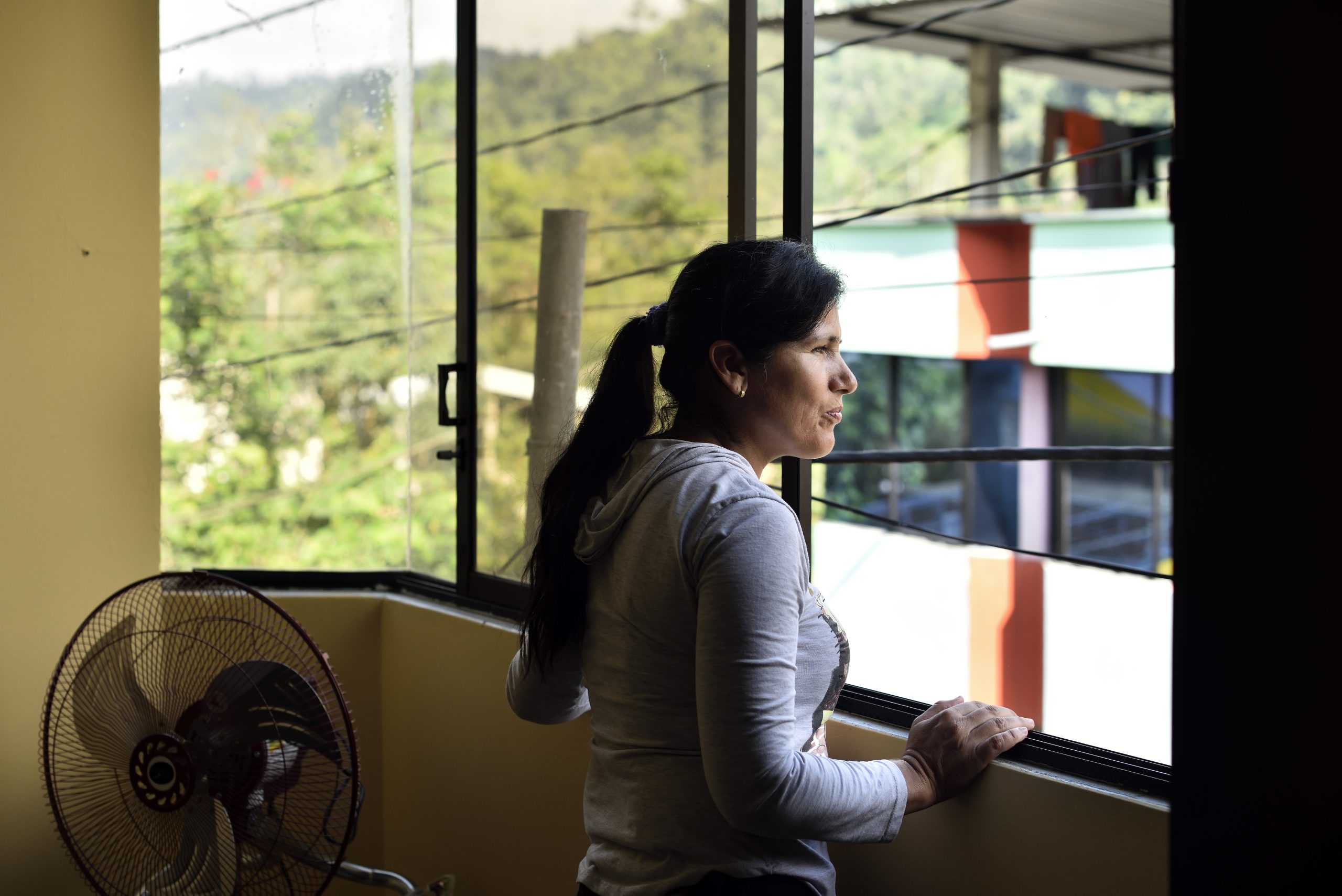We desire peace in Ecuador
We improve the quality of life of 65,000 Venezuelan migrants by addressing basic needs such as access to health care services, food security and protection.

According to UNHCR, 82% of migrants claim that returning to their home country would be risky. Some major risks are uncertainty, fear of armed groups, violence, difficulty in finding a job and thus guaranteeing a dignified existence for themselves and their families. For this reason, millions of people have left Venezuela. Today, half a million people have found refuge in Ecuador. However, Ecuador's economic and social situation cannot ensure them with decent living conditions.
AVSI supports peace in Ecuador by helping migrants with projects designed for them and for the host community's welfare, to create a common and peaceful reality.

Food insecurity, violence, and lack of medical care: the challenges of Venezuelan refugees in Ecuador.
In Ecuador, 25% of people live below the poverty line, and 10% live in extreme poverty. One Ecuadorian out of four lives with 87,57 dollars per month, so they can afford to cover only 12% of their essential needs. In addition, 65% of the active workforce falls outside the employment mechanisms (according to the Ecuadorian National Institute of Statistics and Census). Such a fragile community struggles to protect half a million Venezuelan refugees, who, particularly unaccompanied children and teenagers, are exposed to numerous risks.
In Ecuador, AVSI has been promoting peaceful social and economic integration for years, with different projects for aimed at both Ecuadorians and Venezuelans.
The main risks for Venezuelan migrants in Ecuador
- Acts of violence, forced recruitment by criminal gangs, gender-based violence, human trafficking, and sexual exploitation.
- Begging, child labor, and the lack of secure jobs.
- Extreme weather events: migrants, due to their precarious financial state, often live in areas at risk from landslides, flooding, and earthquakes.
- Inability to access public health services: even though health care is also free for migrants, health centers sometimes deny Venezuelan migrants medical assistance. Besides, health centers cannot meet the growing demand for care.
- Impaired physical and mental health.
- Malnutrition: children eat food that lacks the nutrients they need to grow or they have nothing to eat at all. Migrants often eat less to give their food to their children or other people they care for, which leads to severe malnutrition even in adults, a problem that disproportionately affects breastfeeding mothers.
We desire peace in Ecuador: the aim of the project
The project aims to improve Venezuelan refugees’ quality of life, responding to basic needs such as providing public health services, food security, and protection. To promote peaceful coexistence with the host community, the project deals with strengthening local services and institutions and involving the most vulnerable and marginalized Ecuadorian people in its activities.
What we do with your donation
- Strengthen protection services and prevent gender-based violence.
- Carry out awareness campaigns among migrants (especially community leaders) about the services at their disposal. The campaigns will mainly take place in border areas, temporary accommodation centers, and communities where large numbers of migrants live.
- Set up protection units with social workers and lawyers to identify and safeguard unaccompanied minors.
- Renovate health facilities.
- Carry out nutrition programs in health centers.
- Provide mental and psycho-social support for migrants.
- Ensure medical treatment for children suffering from malaria, diarrhea, and respiratory infections.
- Distribute monetary and food subsidies to the poorest families.
